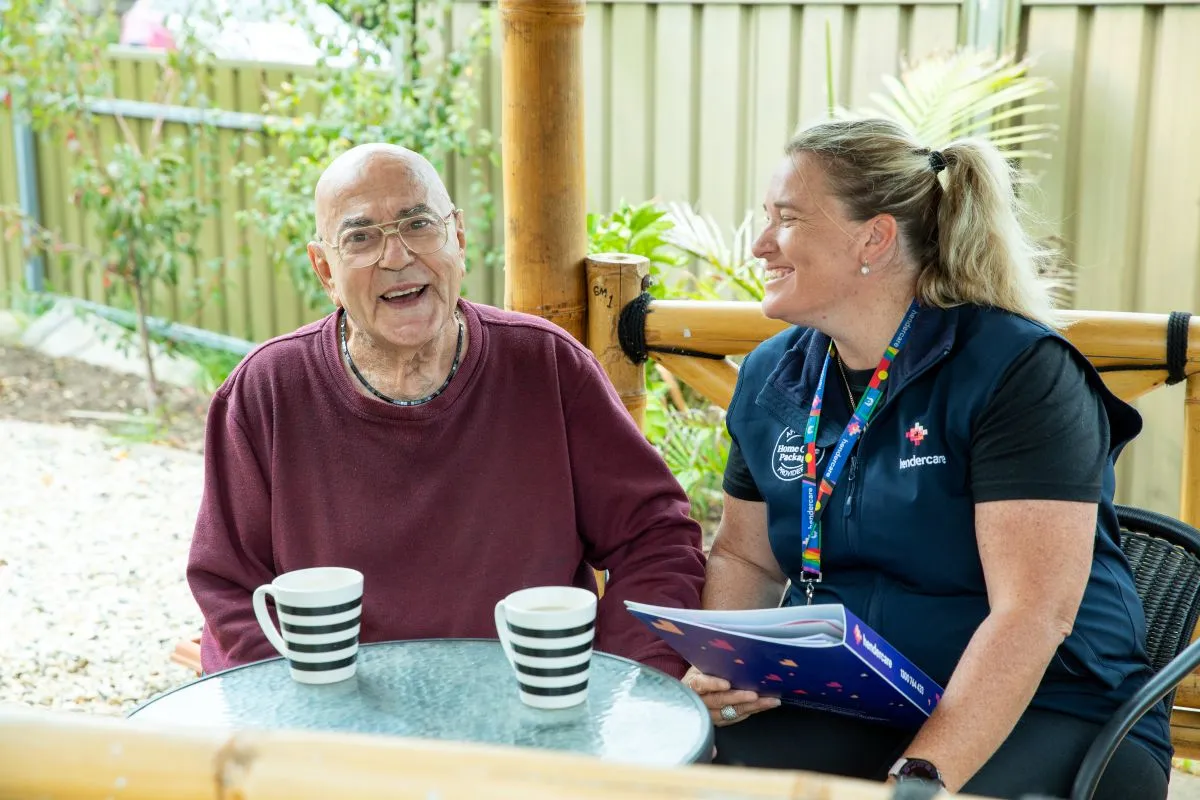Many adult children feel a deep responsibility to become primary caregivers. While this instinct is natural, caregiving can quickly become overwhelming when combined with work, family, and personal well-being.
Despite the availability of professional home care services, misconceptions and stigma often stop families from seeking help. Melissa Lipson, Home Care Team Leader at HenderCare, debunks these myths and explains how in-home support can positively impact families.
MYTH 1: Asking for Help Means Failing as a Caregiver
A common fear is that seeking professional care signals failure or an inability to provide adequate support. In reality, asking for help is a powerful commitment to your parent’s well-being. Home care professionals complement your care by managing tasks like personal care, medication administration,
and mobility support. Their expertise ensures high-quality care while allowing you to focus on maintaining your relationship with your parent. Sharing these duties also protects your own mental and physical health. Asking for help isn’t failing – it’s a responsible and thoughtful choice.
MYTH 2: Home Care Is Only for the Severely Ill or Frail
Some believe home care is reserved for those with advanced health conditions, delaying access to services that could significantly enhance quality of life. Home care is incredibly versatile. At
HenderCare, services range from light domestic tasks to specialised clinical care. Whether it’s assistance with gardening, transportation, or daily routines, support can be tailored to meet individual needs.
Starting with minimal assistance early can help maintain independence and potentially prevent the need for more intensive care later.
Myth 3: Home Care Is Too Expensive
Cost is a significant concern for many families, but home care is often more affordable than assumed. In Australia, the Home Care Packages program offers government subsidies that greatly reduce out-of-pocket expenses for eligible families.
At HenderCare, we guide families through funding options, helping maximise subsidies and create care plans that fit their budgets. With flexible service options, home care becomes a valuable investment in both your parent’s well-being and your family’s peace of mind.
Myth 4: Parents Will Resist Professional Care
Many adult children fear their parents will reject home care, viewing it as a loss of independence. Resistance often stems from misunderstandings about what home care involves.
Approach these conversations with empathy, focusing on how home care supports independence. Explain how services can simplify daily tasks and preserve routines.
Involving your parent in choosing a provider and gradually introducing care workers can ease resistance. At HenderCare, we prioritise matching clients with care workers who align with their personality and preferences, fostering trust and comfort.
The Importance of Honest Conversations
Discussing home care with older parents can be emotionally challenging. The idea of needing help may stir fears of losing independence or admitting vulnerability.
Here are some tips for a productive, compassionate conversation:
- Choose the Right Moment: Find a calm, private setting.
- Listen Actively: Acknowledge your parent’s concerns.
- Focus on Benefits: Highlight how services can improve their quality of life.
- Start Small: Suggest trialling a few hours of weekly care.
Patience and understanding can help transform resistance into acceptance as your parent experiences the benefits firsthand.
Why Home Care Is a Strength
Seeking professional care isn’t stepping back—it’s stepping up. It ensures your parent receives the support they need to live safely and comfortably at home.
HenderCare offers a wide range of services, including personal care, domestic assistance, social engagement, and clinical support. Our goal is to enhance your parent’s quality of life while giving you peace of mind.
Far from being impersonal, home care often fosters meaningful connections. Many care workers become trusted companions, providing both practical support and genuine companionship.
At HenderCare, our compassionate team supports families every step of the way. Whether you need occasional help or comprehensive care, we’re here to ensure your loved one thrives.
It’s okay to ask for help—and doing so might be the best decision for your family.
For more information, call HenderCare on 1300 764 433 or email hello@hendercare.com.au









